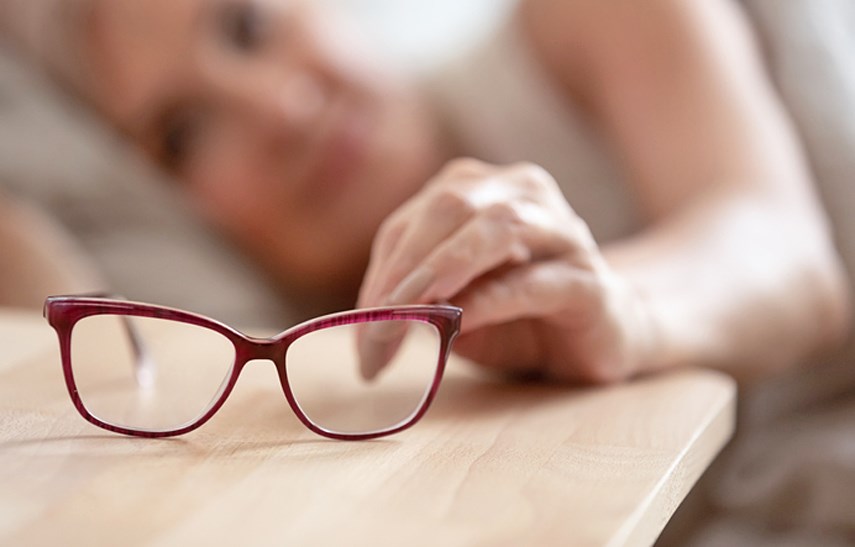If you’ve had the good fortune to have reasonable vision in your life, even if assisted by glasses or other aids, it’s important to try to maintain and protect that vision as we age.
Good vision helps us to maintain our quality of life, our health, independence, mobility, mental health, and our social well-being. Conversely, vision loss has been linked to increased accidents, increased injuries, and poor physical, social, and cognitive functioning.
A loss of vision can affect our ability to work or care for ourselves and others. It can affect how we engage in casual activities such as reading, socializing, and pursuing hobbies, and it can affect our ability to perform self-care activities such as eating and dressing, or activities such as shopping, driving, and managing our finances.
As we age, we can probably expect changes to our vision, and it is important to recognize those changes. Some less serious, but possibly bothersome changes can include difficulty reading small print; taking longer to adjust from light to dark; more sensitivity to glare from sunlight or unshielded light bulbs; loss of depth perception, making it difficult to judge distances; difficulty in seeing contrasts and colour; dry eyes; and tearing or watery eyes.
Much of these normal age-related vision issues can be circumvented by seeing an eye doctor regularly, correcting vision problems through wearing glasses and keeping your eyeglass prescriptions up to date, taking medication, or in extreme cases, surgery. We can also make changes to our homes and routines to stay safe and independent, like getting rid of those throw rugs or brightening up the dark corners.
There are also many services available to help seniors adjust to vision loss including the Canadian Ophthalmological Society, which is a national, recognized authority on eye and vision care in Canada and eye centres in your community.
There are, however, some serious conditions which will need more aggressive treatment, including: glaucoma, degeneration in parts of the eye such as macular degeneration, cataracts, floaters, diabetic retinopathy, and dry eye syndrome which occurs when the tear glands do not produce enough tears. If glaucoma and degeneration are not treated, they can lead to vision loss or even blindness. Floaters are early indicators that something more serious is happening to your eyes so they should be looked at by seeing a doctor.
We can protect our vision and possible accidents from poor vision by turning on the lights and getting higher wattage light bulbs, getting a humidifier, quitting smoking, wearing UVA and UVB blocking sunglasses (research has shown that sunlight is a risk factor for cataracts and macular degeneration), reducing glare, and eating a healthy diet.
It is important to protect your eyes through common sense precautions and practices including safe distancing, washing your hands a lot, following good contact lens hygiene, and avoiding touching or rubbing your nose, mouth, and your eyes particularly after you have touched a surface
Finally, with COVID protocol in place, many of us are spending more time sitting reading and viewing screens. Itchiness, blurry vision, and headaches due to eye strain are being reported. To help protect your eyes, make sure you are getting up and taking short breaks at regular intervals, blinking, and looking into the distance and making sure your screens are appropriate for use.
Borrowing the words of an old Johnny Nash song: “Let’s keep seeing clearly now, and look forward to many bright, sunshiny days.
Margaret Coates is the co-ordinator of Lionsview Seniors’ Planning Society. She has lived on the North Shore for 51 years and has worked for and with seniors for 25 of those years. Ideas for future columns are welcome. Email: [email protected].



